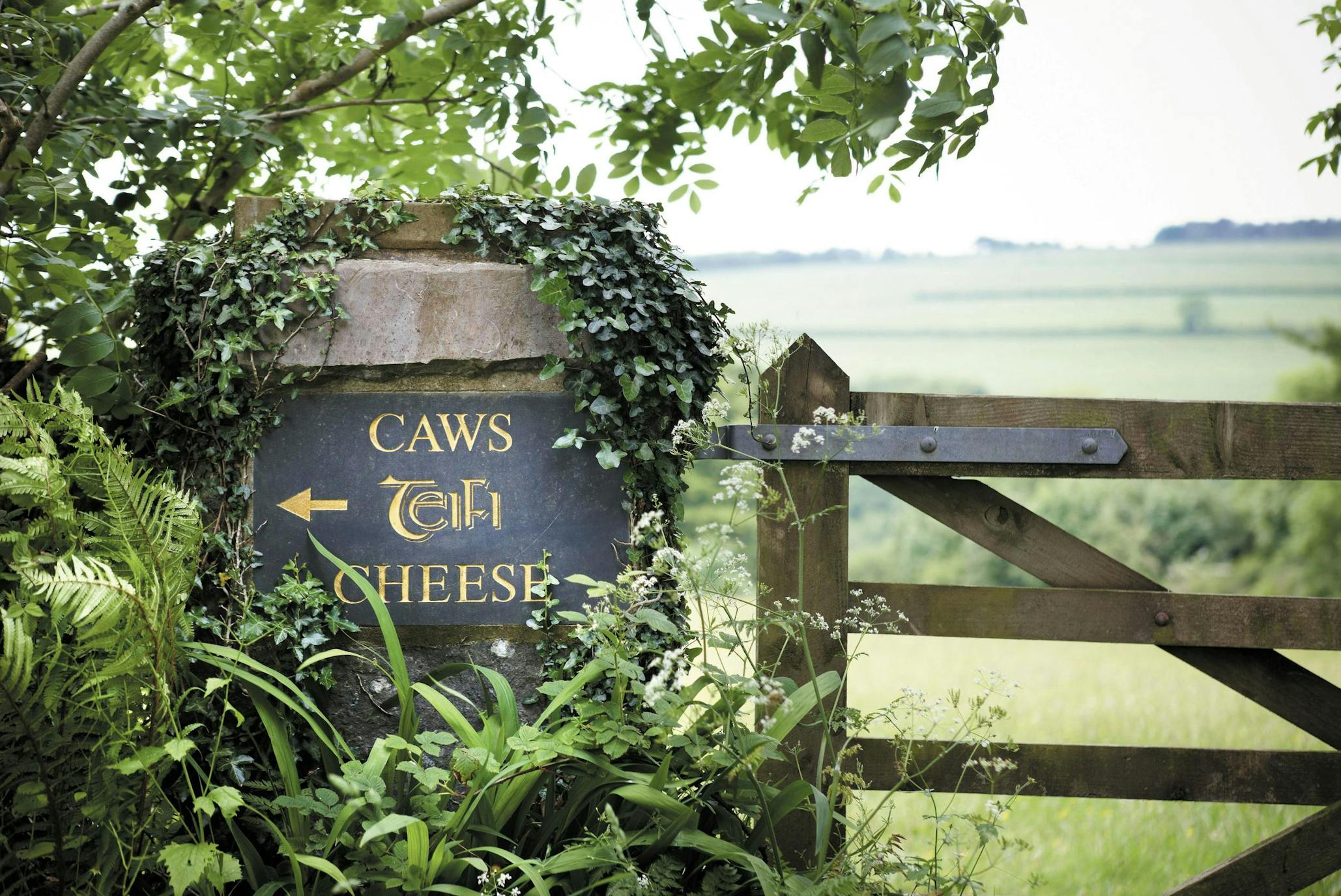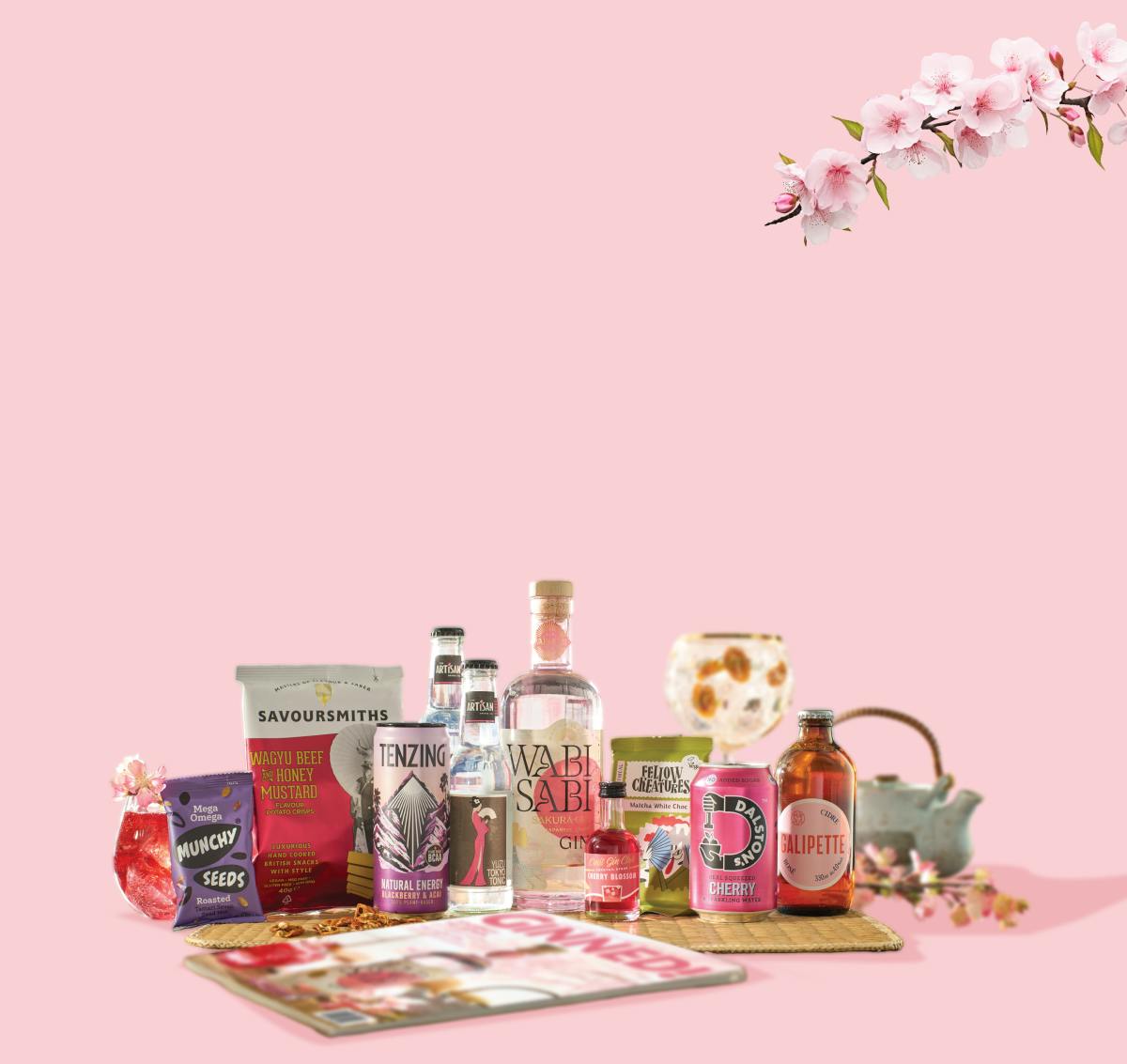
July's Gin of the Month from the Dà Mhìle Distillery is here and it's full of seaweed and cheese!
Below is an excerpt from the July 2015 edition of GINNED! Magazine about the Dà Mhìle Distillery. Every month, Craft Gin Club Members receive a bottle of amazing small-batch gins accompanied by GINNED! Magazine which is full of information about the gin, the distillery and loads of fascinating features.
“How can you govern a country that has 246 different kinds of cheese?”
- Charles de Gaulle
If David Cameron is a student of history, he should study the plight of the first president of France’s Fifth Republic, Charles de Gaulle. With the failure of the post-WWII government, de Gaulle was tasked with reforming the Fourth Republic’s parliamentary system with a semi-presidential government, a job he found utterly difficult due to the nation’s diversity, a diversity embodied in France’s 246 different types of cheese.
Why should Cameron be particularly interested in de Gaulle’s politically curdled dilemma? Because Britons now produce even more types of cheese than the French!
A country known in recent times for its stodgy, plasticky, chemically-infused, faux-dairy product rolling off the industrial factory line has rapidly turned into a milky force to be reckoned with. Led by artisan cheese makers around the country, cheese from the United Kingdom now numbers 700 named varieties according to the British Cheese Board (greatest association pun name ever!) and their quality is boosted with every wheel: even the French have begun importing British cheeses en masse with sales to France up 20% last year.
One of these artisanal examples is the Wales-based Caws Teifi Cheese. An organic cheese made with unpasteurised milk, Teifi Cheese is well ahead of the curve in the UK curd’s renaissance: it began producing cheese on the Glynhynod Farm in Ceredigion County in 1982. All this experience has led to its astounding success as the most highly-awarded cheese in Britain, winning the Best Welsh Cheese six times, the best-Semi-Soft Cheese five times, more than ten gold medals and the title of Supreme Champion twice at the British Cheese Awards.
The cheese’s founder, John Savage-Onstwedder who immigrated from Holland to establish the farm, attributes all these creamy triumphs to the mantra by which he lives in his adopted Welsh countryside: “One cannot survive in Wales by producing mediocrity.”
We’d like you to remember this mantra, dear Craft Gin Club Members, as you sip your selection of Dà Mhìle gins this July, for it is the same mantra instilled in the gins you are tasting. The Dà Mhìle Distillery, you see, is situated on the same Glynhynod Farm that produces Caws Teifi Cheese and just as John Savage-Onstwedder has produced organic cheeses on the farm since 1982, he has now diversified the farm’s products by creating a Distillery on the Dairy.
ANYTHING BUT ORGANICALLY ORDINARY
To avoid banishing their spirits to the purgatory of mediocrity, the Dà Mhìle team began learning the distilling trade with the world’s best. John’s son, John James undertook two training stints, one in Scotland and one in Germany. On Islay, he spent a few weeks at the Kilchoman Distillery, one of Scotland’s newest distilleries and one of the only producing its whisky from grain to glass meaning its distillers grow and malt the barley themselves. Like Dà Mhìle, Kilchoman is a farm distillery so John James was right at home as he learned the tricks of the still trade at a working distillery.
To top off his Scottish expertise, John James came under the wing of Europe’s spirits expert, Dr. Klaus Hagmann, a PhD in distilling techniques and who also helped design Dà Mhìle’s still. Hagmann taught the budding distiller the key to top-quality German distillation - a slow pace. John James explained that where a Scottish distiller may opt for a 3.5 hour distillation time, a German distiller leaves his brood in the still for six hours, a period that results in a fuller flavour. Hagmann trusted his Welsh guest’s slow skills enough on his farm still that he left John James behind for three days as he went on a hunting trip. Not only did the still not explode, but John James returned home to Wales with the patience for leisurely distillation that helps give Dà Mhìle’s spirits their signature taste.
Dà Mhìle’s first gin went into its experimentation phase in 2012. The team knew that it wanted to make an organic gin with “plenty of herbs and spices”, a gin that maintained juniper up front but which would be more flavoursome than others. Ultimately, they landed on a recipe with twenty botanicals (since reworked with 18 botanicals), some sourced from an organic farm in the south of England, others imported from Europe and Asia but all certified organic. The distillery’s location on an organic farm helped as well; the gin’s chamomile, clover and elderflower go straight from the farmland into the still. John James is particularly a fan of the cloves he adds to the recipe which he says give the gin “a nice numbing sensation.”
Some of the organic grain that makes up the base spirit comes from the farm as well, with other organic grains delivered from nearby. The type of grain used to distill the base spirit depends on the season and what’s available which, contrary to what one might think, has little effect on the gin’s final flavour because John James distills it six times, enough to eliminate virtually all taste. The homemade base spirit - increasingly rare in the UK spirits industry - gets added to the still with water straight from the farm’s spring and the botanicals 300 litres at a time, a batch which results in about 150 bottles at 42% A.B.V. The farm’s water source is especially crucial to Dà Mhìle’s spirits: there is no water main that runs to Glynhynod.
FROM BOTANICAL TO BARNACLE
With the success of the Botanical Gin under their belts, the boys from Teifi’s Farmhouse Cheese found inspiration for their next spirit in their cheese, which itself found its original inspiration from a staple to any Welsh diet, seaweed. One of Teifi cheeses’ varieties is made with Laverbread, a boiled seaweed dish that, depending on who you talk to, either Welsh actor Richard Burton or Welsh writer Dylan Thomas described as “Welshman’s caviar.” John felt that if seaweed could work in their award-winning cheeses, it could work for their award-winning spirits too.
Behind the innovative idea lay another twist: they wanted to conceive a gin that would accompany seafood. In late 2013, John James began experimenting with the Botanical Gin to see how it would work with seaweed. He quickly learned that some of the botanicals didn’t mix well with the algae’s saltiness, eliminated them and added others that would complement not only the seaweed but also the seafood, botanicals such as tarragon, cayenne pepper and thyme. 15 herbs and spices now compose Dà Mhìle Botanical Seaweed Gin’s recipe with seaweed being the 16th. But whereas the first 15 botanicals go into the still with the base spirit and water for a slow distillation process, the seaweed is not added until after - and in a much slower fashion.
When the gin is distilled, it is transferred to large stainless steel vats where it rests for two to three weeks, the seaweed swimming within. John James has found three different types of seaweed that work well with the gin, which are harvested during different seasons and which are sourced from the nearby Pembrokeshire Beach Food Company and occasionally from Ireland. Each lends a slightly different flavour to the final product but for the most part, the Seaweed Gin maintains a pretty consistent flavour from one batch to the next, batches that are increasing in frequency so that Dà Mhìle can meet the demand for its unique gin.
But Dà Mhìle didn’t stop being unique with their use of seaweed. In 2014, John James worked on another experiment, one that brought the distillery’s gin closer to its whisky: a barrel-aged gin.
To ensure that the final result wasn’t overpowered by the herbs and spices of the Botanical Gin, John James stuck with only twelve botanicals, ones that would not mask the flavours absorbed from the barrel. Last year, he began with one barrel that previously held the distillery’s organic whisky and let the gin age for about six months. Craft Gin Club Members have the opportunity to taste the last of this Organic Oak-Aged batch this July, a batch that its distiller describes as “a lot dryer” than their other gins and “one you want to drink straight on ice”. Before the year is out, the distillery plans to produce two additional barrels and depending on its popularity, up production in future years.
With three very different and unique styles of gin in production as well as a knack for successful experimentation, the team at Dà Mhìle will surely continue to impress craft gin buffs everywhere. The Welsh farm would even make a great stop off point for someone like Mr. Cameron familiarising himself with his country’s rich diversity. In one go, a campaigning politician could taste several of the UK’s 700 cheeses and three of the ever-growing number of UK craft gins, all at the Distillery on the Dairy.







